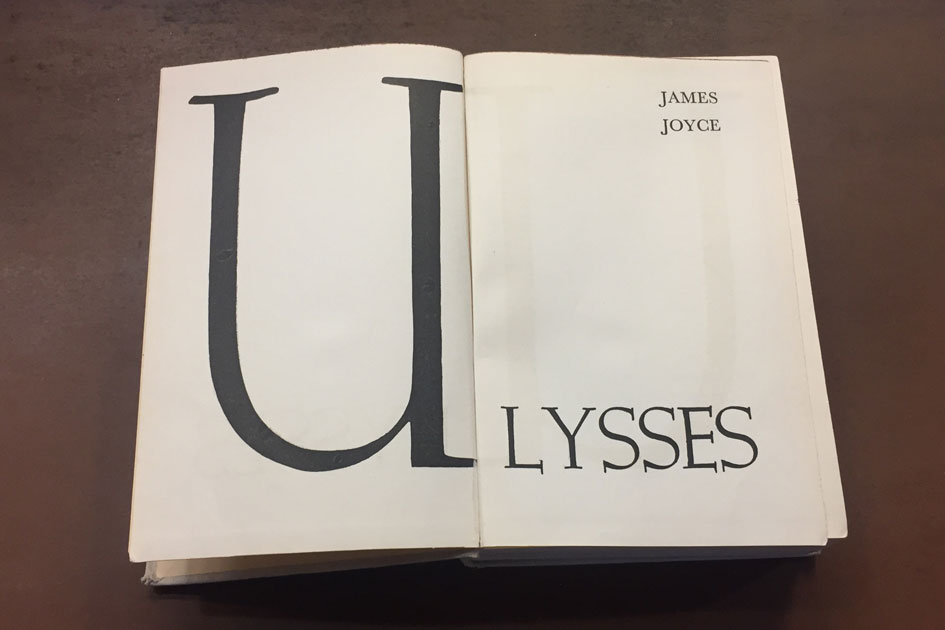Using Mind Tricks To Remember Ulysses
Comp-lit major will exploit ancient mnemonic device to memorize passages from Joyce’s masterpiece.
An attempt to recreate the absurd ambition of the encyclopedic novel; an effort to take on a near-impossible task while recognizing probable failure.
This is how comparative literature major Stephen Valeri ’19 describes his project for Reed’s Winter International Travel Fellowship. He will spend several weeks in Dublin where he will be using the ancient Greek and Roman mnemonic device known as modus loci to memorize passages from James Joyce’s epic novel Ulysses. Other fellows will study sacred architecture in Berlin, the dance pop genre Coupé-Décalé in Côte d'Ivoire, and the history of Hong Kong.
Modus Loci, or method of location, is an imaginal device. It requires you to envision a familiar location and then place visual symbols representing the object you want to recall at its distinct features. This technique is well-suited to Ulysses as Joyce describes the layout of Dublin with meticulous detail. Valeri will walk through the city along the same routes as characters in the novel and deposit the passages that occur there at the same location in his own memory. This practice will thus help him memorize the text while creating a more significant bond with it.
In the digital age, interest in mnemonic devices has flagged and the concept of memorization seems almost quaint—a trend that Valeri is determined to fight. His fascination with memory first blossomed in high school in Buffalo, New York, where he learned that in ancient Greece, memory was considered a vital form of intellectual achievement, on par with reason. He challenged himself to commit 3500 German words to memory in a single month.
The idea for the Ulysses project began forming when he encountered Gustave Flaubert’s Bouvard et Pécuchet, a literary antecedent to Joyce’s novel, which describes the adventures of two clerks who abscond to the countryside on an ill-fated quest to learn all human knowledge. Valeri was attracted to two aspects of the text: the absurd ambition present both in the authoring of the novel and in the scheme of its protagonists; and the clerks’ blundering attempts to apply their book-learning to practical problems.
Valeri relates this to his own undertaking, which is similarly preposterous—Ulysses contains approximately 265,000 words—but that won’t stop him from trying. Once he’s back from Dublin, he plans to share his experiences at a poster session next semester.
Reed's Winter International Travel Fellowship gives students a chance to pursue a passion, professional development, or service work over winter break.
Tags: Awards & Achievements, Cool Projects, Editor's Picks, Life Beyond Reed, Sports & Adventures
